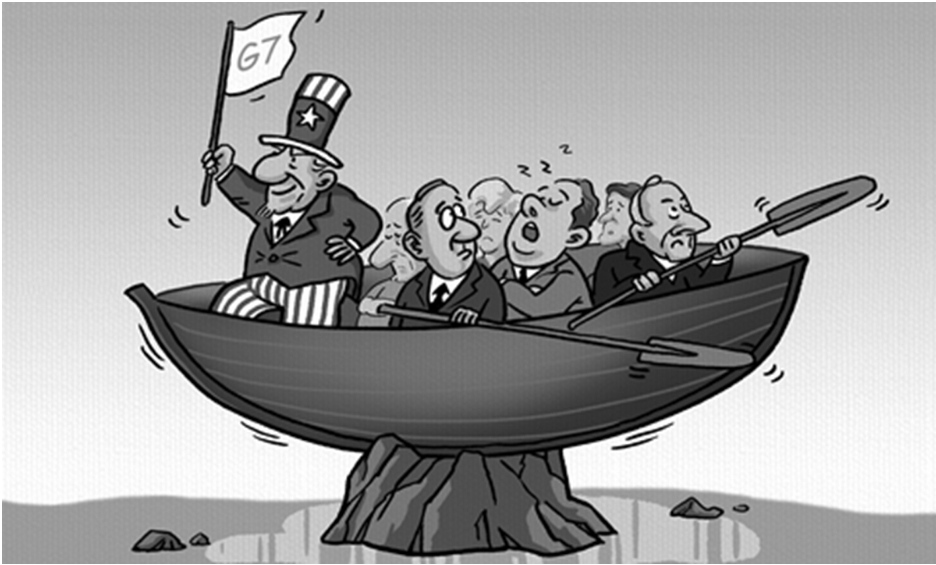G7 increasingly outdated, irrelevant in multipolar world

US President Joe Biden is scheduled to attend a meeting of the Group of Seven (G7) in the UK in June. These countries are USA, Japan, France, Germany, Canada, UK and Italy. During the meeting the US is likely to urge its G7 allies to step up pressure on China over the use of so-called forced labor in Xinjiang, a top White House official said on Friday, according to media reports.
Practically speaking the G7 has already become an outdated group of countries. The G7 is described itself as a group of the seven wealthiest and most advanced countries in the world. At the initial stage of its foundation, it was a bloc where members could come together to discuss economic concerns. But slowly the role the G7 could play in the world economy has remarkably declined.
In the aftermath of the 2008 financial crisis, Western countries, including members of the G7, themselves witnessed a huge economic downturn to varying degrees. This exposed their numerous problems in their own governance. Earlier these problems were swept under the carpet.
Furthermore, in the seven countries, domestic problems such as the rise of racism and poverty have become sharper in recent years. This reveals their institutional crisis, which cannot be fundamentally solved at least in the short run.
There are divergences of interests among this bloc. Former US president Donald Trump’s four years’ presidency undermined the US alliance system. And the G7 is not as united as it appears to be. Some disputes between the US and Europe have not been tackled. Burden sharing is still under discussion.
The two sides have only agreed to temporarily suspend tariffs on some products. Days after taking office, Biden signed an executive order to boost federal agencies’ purchases of US products, fulfilling his campaign pledge to lay out a “buy American” plan.
Many European countries see it as trade protectionism. These frictions between the US and Europe which cannot be settled will hinder the solidarity of G7 as well as other groups in which they are all members.
Against this backdrop, it will be difficult for the G7 to play any substantial role. With the decline of the seven countries and the rise of other emerging economies, like China, India and few others, its role in economic coordination is weakening and this bloc is incapable of leading the global economy.
In this context, the group has to look for other reasons to maintain its existence. “Human rights” must be one of them. Labeling themselves as democratic countries, the seven countries share common values in this aspect.
This has become one of a few areas it can hype to prove the group’s values. Additionally, presently they see Beijing as its main strategic rival that threatens its global hegemony and leadership, Washington has repeatedly incited its allies to side with it in denouncing China’s so-called human rights problems.
This is the main reason why recent G7 meetings frequently discuss agendas on China’s “human rights” and “democracy.” USA, Canada and UK also keep targeting India in its internal affairs.
In addition, other members differ from the US in how to deal with China. European members less UK clearly intend to cooperate with China given the massive mutual interests, and they have put more emphasis on strategic autonomy.
China’s countermeasures against the EU over so-called human rights issues in Xinjiang have shown European countries China’s firm opposition and intolerance over their groundless criticism and meddling in China’s internal affairs. It is believed that other members of the G7 will make a wise choice that is consistent to their national interests.
Many countries of the G7 are members of the Eight-Nation Alliance, which invaded Beijing in 1900. But China today is not a country which can be arbitrarily bullied by them like they did 120 years ago. Their ties with China must be based on mutual respect.
Following the US’ lead, tying them to the US’ anti-China chariot and engaging in any activities to interfere in China’s internal affairs and fabricate lies to slander China will bring nothing productive to them.




